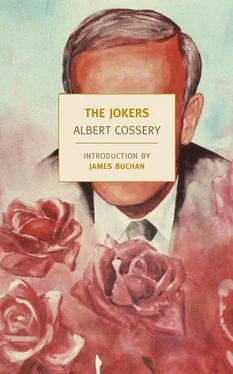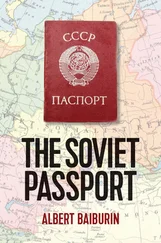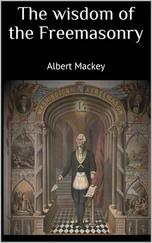“How infantile!” Taher retorted disdainfully. “I don’t doubt your intelligence, Heykal effendi, not in the least. But excuse me if I tell you that you’re just having fun while the people are suffering from oppression. Fun is no way to fight. Violence must be met with violence. And forget about innocence!”
“Violence will never get to the bottom of this absurd world,” Heykal responded. “That’s just what these tyrants want: for you to take them seriously. To answer violence with violence shows that you take them seriously, that you believe in their justice and their authority, and it only builds them up. But I’m cutting them down.”
“I don’t see how! There is no historical basis to what you do — to your insipid farces!”
“How? It’s easy. By letting the tyrants lead the way and being even stupider than they are. How far will they go? Well, I’ll go farther. They’ll have to prove themselves the greatest buffoons of all! And my pleasure will be that much greater.”
“But the people!” cried Taher. “The poor people! You forget about them. They’re not laughing!”
“Teach them to laugh,” Taher effendi. “Now that is a noble cause.”
“I don’t know,” said Taher in a strangled voice. “I’ve never learned to laugh. And I don’t want to.”
He said it regretfully, as if ending a painful and impossible love. Heykal felt his happiness melt away. It was true Taher didn’t know how to laugh — one look at him and you could see it. In a state of constant tension about the battles to come, always plotting and scheming, worried out of his mind by the thought of the misery of the people — he was doomed to unhappiness. He was the perfect manager of the revolution. Nothing mattered apart from his job: that of a predestined savior, walled in by self-regard. Pure egotism! The worst kind of egotism, since by definition it depended on a multitude of other people — whole groups of people — in order to thrive and prosper!
“Well,” Heykal said, “I’m afraid the tyrants will make a fool of you. One of you is going to be the butt of a joke.”
“What nerve, Heykal effendi! Has it never occurred to you that we might actually defeat the tyrants?”
“I prefer a laughable tyrant to a dead one. The pleasure lasts longer.”
Taher wrung his hands and squirmed in his chair, convulsed with shame. He was certain that Heykal’s cynical paradox-mongering words were solely intended to humiliate him. Joy and pleasure — to dare to speak of such things to him, he who had known nothing but the exquisite pangs of hunger. Finally he was showing his true colors. Taher’s shame turned into indignation at the intolerable thought that this man, disguised as an apostle of pacifism, had conquered Karim with his tricks. Karim had a generous heart; had he sunk to the point of becoming an impostor’s accomplice? Taher glanced at his old comrade frantically, as if hoping for assistance in the name of some long-ago pact that no treachery could undo. But Karim appeared to take no note of his suffering. Almost gasping, a smile hovering on his lips, he had eyes only for Heykal, whose every word seemed to emerge from the mouth of an oracle. His subordination was complete. It made Taher sick.
“Don’t you have anything to say, you traitor!”
Karim turned toward his comrade, cut to the quick, torn from the state of ecstasy into which Heykal’s last reply had sent him.
“What am I supposed to say,” he replied angrily. “I’m in complete agreement with Heykal. A child would understand what he just said. But you, you’re deaf! You boast of your revolutionary honor like a pregnant woman displaying her belly! It’s painful to watch.”
“Look where your treachery has led you — you insult everybody you once held dear. You’re worth less than a dog!”
“Taher effendi, do not condemn my friend Karim,” interrupted Heykal. “Maybe he used to be different, but he has the right to change. Do you deny that thinking evolves?”
“But he doesn’t think at all,” exploded Taher. “He’s a hypocrite; I understand that now. He pretended to love the people for the pleasure of making fun of them. He betrayed them and he betrayed me at the same time!”
“That’s not fair,” Heykal said. “Karim hasn’t betrayed anyone. That would require a great deal of ambition — and Karim doesn’t have any. He dreams of a life of love.”
“So he says. But if I were you, I’d watch out. Did you know, Heykal effendi, that he told me he’d lay down his life for you if you asked him to? Crazy, no? And yet he was sincere. And he was sincere when he wanted to give his life to the revolution.”
“It’s not the same thing!” Karim yelled. “You’re confusing everything, it’s unbearable! My love for Heykal is free of politics. I don’t love him to deliver him from oppression; he’s already free. It has nothing to do with your kind of love — like an accountant distributing future happiness to the poor!”
Taher looked at Heykal with a mocking sneer.
“I’d like to know just what kind of man you are to inspire such passion in this cretin.”
“A very simple man, Taher effendi. Only I never inflict my notion of honor and dignity on others. I look for other things from my fellow human beings. My friend Karim is free to change his way of thinking tomorrow. I wouldn’t hold it against him, because no matter what he does, he’ll never be a bore. Which is the important thing.”
“So what do you think is important in a man?”
“That he gives me a sense of wonderful plenitude, even when caught up in life’s trivialities. The breadth of joy he conveys. That’s how you recognize the richness of a man’s love.”
The odious, detestable mania of the man! Talking about joy again! Did he really believe in it? Was that all there was for him on earth? On this ravaged earth, which men burn to ashes again and again — how could anyone find love and happiness here? You’d have to be a slob to settle for such inanities. Or a grinning idiot. But Heykal wasn’t a slob or an idiot. He wanted to amuse people, to teach them how to laugh at the tyrants. Easy enough to say! But the people needed to learn other lessons. Taher thought about everything that remained to teach the people, and the immensity of the task made him sick with despair.
Heykal gave him a sympathetic glance, stirred to the depths to detect, in this model manager of the revolution, a budding awareness of the vanity of his struggle — barely budding, true, but appreciable all the same. The tight jacket, the stiff collar and threadbare tie were emblematic of his perfect domestication. The rags of a society that he wanted to fight against — he made it a point of pride to wear them. A revolutionary, but with dignity — dressed in the same uniform as the adversary and ready to take his place. What a magnificent specimen of the era! And ripe for reinvention still; Heykal would have liked to adopt him, to have him around all the time, the living image of irony. But it was a dream for a king — an object so precious was beyond his means.
The silence, and Heykal’s affectionate gaze — as it seemed to Taher — made Taher get a grip on himself. He broke in:
“These virtues you speak of, Heykal effendi, could just as easily belong to a rat. Would you accept the breath of joy from a rat?”
“Rats kill any breath of joy,” responded Heykal, “and whatever side they’re on, I hate them. But that’s not the kind of man you are, Taher effendi. I know how to recognize a man’s true character, beneath the appearances. Why do you stubbornly put on a mask that makes you suffer? I’m sure you could learn to be happy and to embrace the frivolous and the vain. I’d like to see you when that happens.”
Читать дальше












